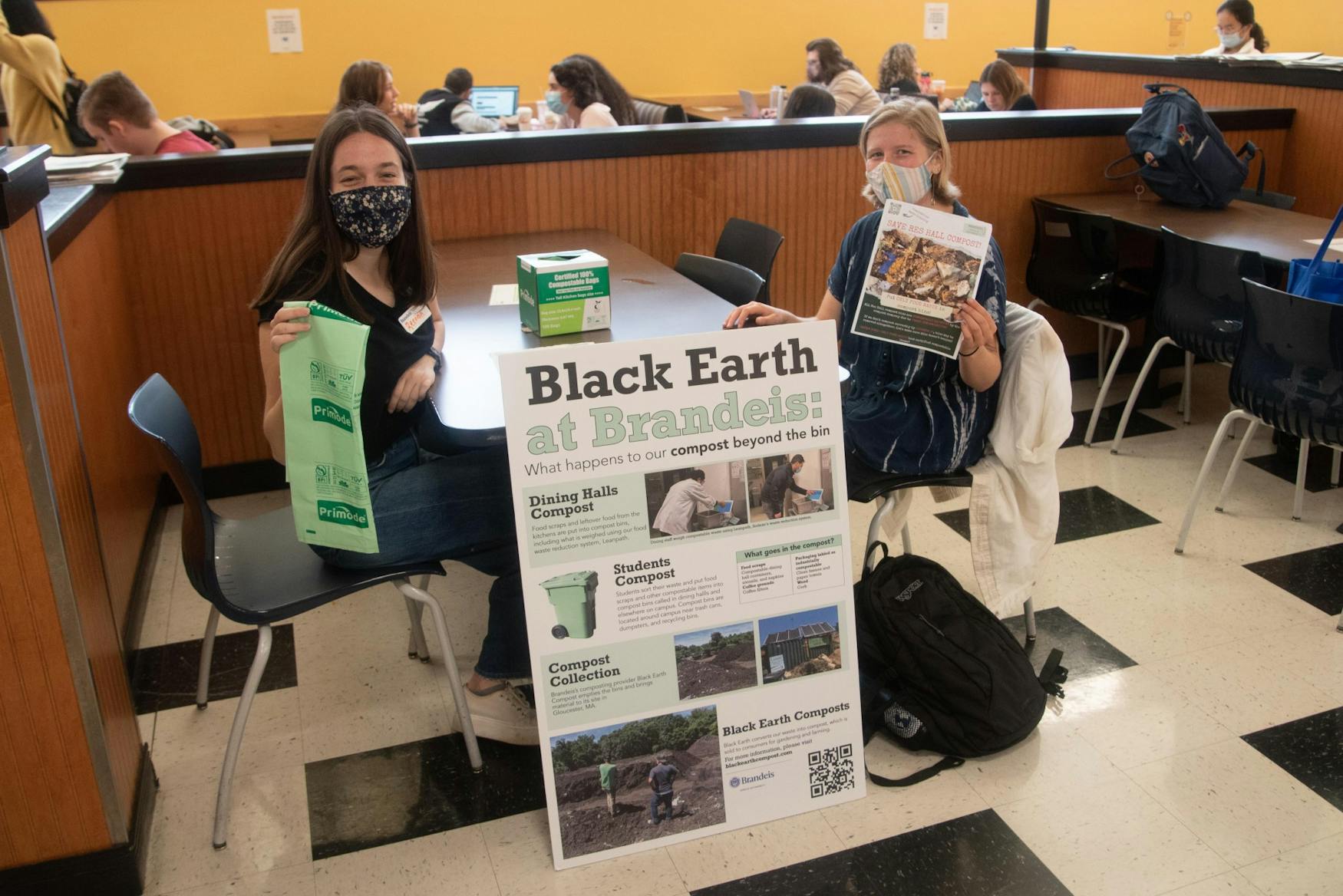Editorial: Brandeis must continue to work toward a more sustainable campus
On Sept. 29, the Brandeis Office of Sustainability posted on their Instagram that the University has an Oct. 25 deadline to “save our compost.” Since then, the office has engaged in a campaign to raise awareness of the deadline, deploying its ambassadors to speak in classes, pushing social media content and adding a slew of new signage to campus.
For several weeks in a row, Black Earth Compost, the company that processes Brandeis’ compost waste, has rejected most — if not all — of the pickups due to contamination. The company has given Brandeis until Oct. 25 to reverse this trend, or else they may cancel our contract and remove compost bins from the residence halls. This would be a massive shame — according to the Department of Agriculture, food waste is the single largest contributor to municipal landfills, which account for 14% of U.S. methane emissions. Composting food scraps prevents much of that waste from ever entering landfills, both reducing methane emissions and helping to create new, fertile compost soil.
The Office of Sustainability has a variety of useful guides on their website, detailing which type of waste should go into each bin: trash, recycling or compost. At its simplest, only food waste and items clearly marked as compostable should go into the green compost bins. Recycling is more complicated, but a Recyclopedia tool lives on their website, explaining whether various items are recyclable or not.
The most important thing to note is “when in doubt, throw it out” in the trash. It is natural to want to recycle things that are not able to be recycled — called “wishcycling” — but the practice is very damaging, as the entire bin must then be thrown into the trash. The same is true for compost. To prevent this contamination, throw away items unless you are absolutely sure they can be recycled or composted.
We appreciate the University’s commitment to sustainability through compost, and call on students to do better in educating themselves on what can and cannot be recycled and composted, and separating their waste more effectively.
We understand that it may be a challenge at first, but the resources exist to educate oneself, and refusing to do so has profound impacts on the campus’s carbon footprint.
In other sustainability news, University President Ron Liebowtiz sent an email to the Brandeis community on Oct. 6 with updates on the sustainability of the University’s endowment. Liebowitz reported that the Board of Trustees voted to unanimously extend the University’s policy of not making new investments in fossil fuel companies, “deepen our efforts” to invest in the green sector and develop an analysis tool for tracking the University’s direct and indirect emissions. Liebowtiz also stated that the University would continue to liquidate investments in fossil fuel companies as the securities mature to their natural end. This board appreciates that the University has committed to not investing in any more fossil fuel private limited partnerships. However, we strongly urge the University to divest from fossil fuel companies and to continue to evaluate ways to decrease the University’s carbon footprint.



Please note All comments are eligible for publication in The Justice.